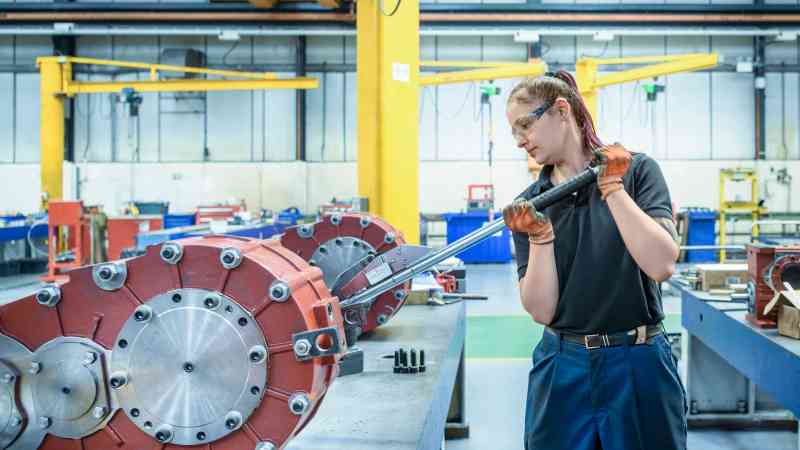The economy grew by 0.6 per cent in the second quarter of the year, making Britain the fastest-growing member of the G7 this year.
Official figures from the Office for National Statistics showed economic growth had slowed slightly from the 0.7 per cent expansion recorded at the start of the year, with the 0.6 per cent figure being in line with economists’ expectations. The economy has grown by 1.3 per cent in the first half of the year, outpacing the United States and representing the fastest growth in the G7 group of advanced economies.
The figures are a boost for Rachel Reeves, the chancellor, who is banking on higher growth to repair the public finances and to prevent the need for significant spending cuts or tax rises. Labour wants Britain to achieve the “highest sustained growth level in the G7” in this parliament.
Growth in the second quarter was driven by a strong performance in the dominant services sector, which expanded by 0.8 per cent, offsetting a contraction in the production and construction sectors, both of which declined by 0.1 per cent between April and the end of June. Manufacturing output dropped by 0.6 per cent in the second quarter, after a 1.1 per cent expansion at the start of the year.
Household spending contributed 1.7 percentage points to the second quarter’s performance, which also was boosted by government spending and investment. Trade was a small drag on output owing to a sharp rise in imports of 7.1 per cent, the ONS said.
Reeves, who is expected to announce tax rises in her first budget in October, said that higher growth was part of the government’s “national mission and we are taking the tough decisions now to fix the foundations, so we can rebuild Britain and make every part of the country better off”.
Monthly growth in June was flat at 0 per cent, down from the 0.4 per cent rate recorded in May and lower than economists’ forecasts of 0.1 per cent. Although most parts of the economy slowed in June, the services sector was boosted by the Euro 2024 football championship and by Taylor Swift concerts.
Jake Finney, an economist at PwC, said that momentum would pick up in the second half of 2024, “given that wages are growing in real terms and the Bank of England has started to loosen monetary policy. Our modelling indicates that the economy will grow by 1 per cent across 2024 as a whole, up from 0.1 per cent last year.”
The economy has recovered well from a short-lived recession at the end of 2023, with falling consumer prices inflation helping to boost household spending and business confidence. The Bank cut interest rates for the first time in four years this month to 5 per cent, with the City expecting at least one more rate cut before the end of the year. Analysts at Capital Economics said that the base rate would fall to 3 per cent by the end of next year.
The second-quarter GDP figure was below the 0.7 per cent forecast made by the Bank this month, but it will still give ratesetters confidence that the UK is heading for a “soft landing” after two years of high inflation.
Separate figures this week showed that the eurozone’s 20 member states had recorded an average growth rate of 0.3 per cent in the second quarter, with Germany contracting by 0.1 per cent. The American economy recorded an approximate 0.7 per cent expansion between April and June.
